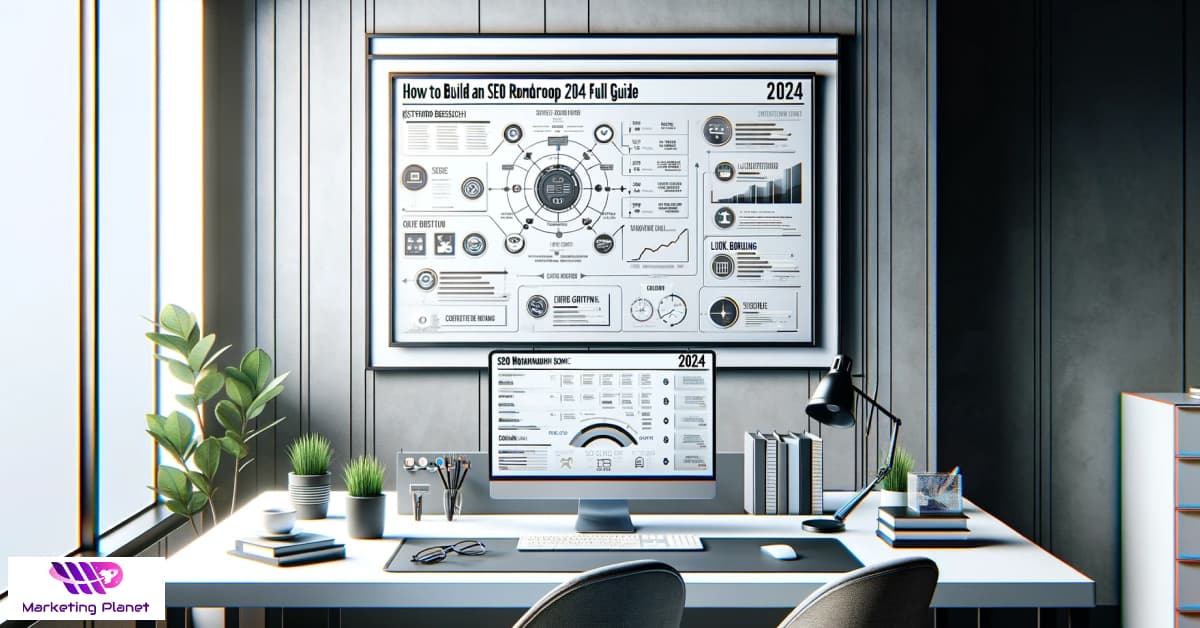Choosing the right Content Management System (CMS) is a critical step in building and managing a successful website. Whether your goal is to create a personal blog, launch an e-commerce store, or establish a professional business site, the CMS you select should align with your specific needs, be intuitive to use, and support your long-term objectives.
Table of Contents
ToggleWith an abundance of CMS platforms available, deciding on the right one can be overwhelming. In this guide, we’ll break down the top CMS options, highlight their key features, and provide practical insights to help you determine the best platform for your project.
What is a CMS and why is it important?
A Content Management System (CMS) is a software platform designed to simplify the creation, organization, and management of digital content. Acting as the backbone of your website, a CMS handles the technical complexities, allowing you to focus on producing high-quality content.
Here’s why a CMS is essential for your website:
- Usability: CMS platforms are designed to be user-friendly, enabling even non-technical users to manage websites with ease. This accessibility benefits both beginners and professionals.
- Customization: They support unique designs and advanced functionalities, making it possible to align your website with your brand identity and specific business goals.
- SEO Optimization Services: Many CMS tools include built-in features or plugins to enhance your site’s visibility on search engines, driving organic traffic.
- Scalability: As your business grows, a CMS can accommodate increased traffic and content without compromising performance, ensuring seamless scalability.
- Security: Regular updates and advanced security features protect your site against cyber threats, safeguarding sensitive data and ensuring reliability.
Top 5 CMS Tools Compared: Find the Best Fit for Your Website
Choosing the right CMS platform is crucial for creating a functional and visually appealing website. Here’s an overview of the best and most cost-effective CMS platforms, tailored to various needs:

WordPress: The World’s Most Popular CMS
WordPress is renowned for its flexibility, ease of use, and extensive plugin ecosystem. Whether you’re creating a blog, a business site, or an e-commerce platform, WordPress provides powerful tools to bring your vision to life.
- Key Features: Thousands of plugins and themes, SEO-friendly tools.
- Usability: Beginner-friendly with a minimal learning curve.
- SEO Capabilities: Excellent, with plugins like Yoast for advanced optimization.
- Security: Requires regular updates and monitoring to maintain security.
Joomla: A Solid CMS with Advanced Capabilities
Joomla is a robust CMS suited for websites requiring advanced functionality. Its strong user management and multilingual capabilities make it ideal for more complex projects.
- Key Features: Advanced user management, multilingual support, customizable extensions.
- Usability: Moderate learning curve, best for users with technical skills.
- SEO Capabilities: Strong, with extensions available for enhanced optimization.
- Security: Strong built-in features but still requires regular updates.
Drupal: Ideal for Enterprise-Level Websites
Drupal excels in managing large, complex websites with high traffic and significant content demands. It offers advanced customization options and enterprise-grade security.
- Key Features: Highly customizable, scalable, robust security features.
- Usability: Best suited for experienced developers due to its steep learning curve.
- SEO Capabilities: Excellent, with granular control over metadata, URL structures, and content organization.
- Security: Known for its exceptional security, ideal for sensitive or large-scale sites.
Shopify: The Best CMS for E-commerce
Shopify is a cloud-based CMS built specifically for e-commerce businesses. It simplifies online store creation with tools for managing products, payments, and inventory.
- Key Features: Secure payment gateways, inventory management, customizable themes.
- Usability: Extremely user-friendly, tailored for store owners.
- SEO Capabilities: Excellent tools for optimizing product pages, metadata, and URLs.
- Security: Top-tier security, including SSL certificates and PCI compliance.
Wix: A Beginner-Friendly CMS for Small Websites
Wix offers a simple drag-and-drop interface, making it ideal for portfolios, personal websites, and small businesses. It’s an all-in-one platform designed for users with minimal technical expertise.
- Key Features: Drag-and-drop builder, pre-designed templates, integrated hosting.
- Usability: Extremely easy to use, with no coding skills required.
- SEO Capabilities: Basic tools, sufficient for small sites but lacks advanced customization.
- Security: Standard features, suitable for smaller-scale websites.

WordPress vs. Joomla: Which is Better?
WordPress and Joomla are frequently compared for their diverse features and functionality:
- WordPress: Best for beginners due to its ease of use, large community support, and extensive plugins.
- Joomla: Suited for complex sites with advanced user management and multilingual support but requires a steeper learning curve.
The choice depends on your website’s complexity and your technical proficiency.
CMS Feature Comparison: Key Areas
This section evaluates the top CMS platforms across five critical areas to help you identify the best match for your needs: usability, customization, SEO capabilities, security, and integration features.
1. Usability
Ease of use is essential for managing and updating your site efficiently:
- WordPress: Beginner-friendly, featuring the intuitive Gutenberg block editor and a straightforward interface.
- Joomla: Provides advanced control but requires moderate technical knowledge, making it ideal for intermediate users.
- Drupal: Designed for experts, with a steep learning curve but unmatched flexibility for large-scale projects.
- Shopify: Optimized for e-commerce, offering a user-friendly experience tailored to store owners with minimal technical skills.
- Wix: The easiest platform for beginners, featuring a drag-and-drop interface that eliminates the need for coding.
2. Customization Options
Customization determines how much control you have over your website’s design and functionality:
- WordPress: Offers unparalleled flexibility with thousands of plugins and themes to cater to any niche.
- Joomla: Excels in multilingual support and advanced user management but requires some technical expertise.
- Drupal: Highly customizable but best suited for developers who can leverage its coding potential.
- Shopify: Well-suited for e-commerce, allowing product and store customization, though less adaptable for non-e-commerce sites.
- Wix: Limited customization, but templates provide enough flexibility for smaller-scale projects.
3. SEO Capabilities
Search engine optimization tools ensure your website ranks higher and attracts more visitors:
- WordPress: Features SEO plugins like Yoast for advanced optimization, making it a top choice for content-driven sites.
- Joomla: Strong built-in SEO features, with additional extensions available for enhanced capabilities.
- Drupal: Excellent for custom SEO strategies, offering total control over URLs, metadata, and site structure.
- Shopify: Tailored for e-commerce SEO, optimizing product pages and metadata effortlessly.
- Wix: Basic SEO tools designed for smaller websites, lacking the advanced features available in other platforms.
4. Security
Protecting your website from cyber threats is a key consideration:
- WordPress: Relies on regular updates and third-party plugins to maintain security, requiring active management.
- Joomla: Includes robust built-in security measures, though frequent updates are still necessary.
- Drupal: Known for its enterprise-grade security, making it a top pick for high-traffic or sensitive websites.
- Shopify: Offers PCI compliance and SSL encryption as standard, ensuring safe transactions for e-commerce users.
- Wix: Provides essential security features, suitable for smaller, less complex sites.
5. Integration Features
Integration capabilities allow your CMS to connect with external tools and services:
- WordPress: The most versatile, with over 50,000 plugins, integrating seamlessly with tools like Google Analytics and WooCommerce.
- Joomla: Supports integrations with CRMs and e-commerce platforms, making it ideal for community-driven sites.
- Drupal: Offers advanced API integration for custom workflows and enterprise solutions.
- Shopify: Perfect for e-commerce, integrating with payment gateways, shipping tools, and marketing apps like Google Shopping.
- Wix: Limited third-party integrations but adequate for simple marketing and analytics needs.
Overview of Top 5 CMS Tools |
|||||||
|---|---|---|---|---|---|---|---|
| CMS | Description | Key Features | Usability | SEO Capabilities | Cost | Pros | Cons |
| WordPress | The World’s Most Popular CMS, Renowned for Flexibility and Adaptability | Thousands of Plugins and Themes for Customization | Beginner-Friendly With a Minimal Learning Curve | Excellent, With Advanced Plugins Like Yoast for Optimization | Free to Use, But Hosting Costs Range From ~7 CAD to 72 CAD/Month | Highly Flexible, Extensive Community Support, and SEO-Friendly | Requires Regular Updates to Address Security Vulnerabilities |
| Joomla | A Robust Platform Offering Advanced Functionality and Flexibility | Advanced User Management, Multilingual Support, and Extensions | Moderate Learning Curve; Suitable for Users With Some Technical Knowledge | Strong, With Options to Add SEO Extensions for Enhanced Capabilities. | Free, With Optional Hosting Costs Ranging From ~14 CAD to 43 CAD/Month | Excellent Multilingual Support and Advanced Features for Complex Sites | Steeper Learning Curve Compared to Other CMS Platforms |
| Drupal | Ideal for Large-Scale, Enterprise-Level Websites Needing Customization and Scalability | Highly Customizable, Enterprise-Grade Security, and Scalability | High Learning Curve; Best for Experienced Developers or Large Teams | Excellent, Offering Complete Control Over SEO Features Like Metadata and URL Structures | Free, But Hosting Costs Are Higher, Ranging From ~29 CAD to 72 CAD/Month | Highly Scalable and Customizable, With Robust Security Features | Requires Technical Expertise and Setup Time |
| Shopify | A Cloud-Based CMS Tailored for E-Commerce Businesses | Secure Payment Gateways, Inventory Management, and Customizable Themes | Intuitive Interface, Designed for Store Owners With Minimal Technical Skills | Strong SEO Tools for Optimizing Product Pages, Metadata, and URLs | Plans Start at 42 CAD/Month, Plus Transaction Fees | Simplifies E-Commerce Setup With Reliable Hosting and Tools | Limited Design Flexibility for Non-E-Commerce Uses |
| Wix | A Beginner-Friendly CMS Ideal for Small Websites or Portfolios | Drag-And-Drop Builder With Pre-Designed Templates | Extremely Easy to Use; No Technical Skills Required | Good for Basic SEO Needs, Though Lacks Advanced Features | Plans Range From 23 CAD to 85 CAD/Month | User-Friendly and an All-In-One Platform. | Limited Scalability for Larger, More Complex Sites |

How do I choose the right CMS for my website?
The right CMS depends on your specific needs and goals. Below are tailored recommendations based on popular use cases:
- For Beginners: Wix offers an intuitive drag-and-drop interface, making it an excellent choice for personal or small business websites with minimal technical requirements.
- For Blogging: WordPress stands out with its vast plugin ecosystem, robust SEO tools, and active community support, making it ideal for bloggers and content creators.
- For Complex Sites: Drupal is the top choice for large, enterprise-level websites requiring extensive customization, scalability, and strong security features.
- For E-Commerce: Shopify is unmatched for online stores, providing user-friendly tools, secure payment gateways, and seamless integrations for a hassle-free e-commerce experience.
- For Community Portals: Joomla excels in managing user interactions, multilingual support, and advanced user management, making it suitable for forums, university websites, and other community-driven platforms.
What is the most user-friendly CMS?
User-friendly CMS platforms make it easy to create and manage content, even for those without technical expertise. The simplicity of a CMS determines how quickly teams can learn and use it effectively.
WordPress is widely regarded as the most user-friendly CMS. Its clean, intuitive dashboard features a well-organized menu, making navigation straightforward and functions easy to locate.
The Gutenberg Block Editor enhances usability by offering a visual drag-and-drop interface, enabling content creators to build and customize pages effortlessly. This combination of simplicity and powerful tools makes WordPress an excellent choice for users of all skill levels.
Which CMS is best for e-commerce?
Shopify remains the top choice for e-commerce due to its specialized tools and seamless user experience. As detailed earlier, its secure payment options, inventory management, and customizable themes make it an ideal platform for setting up and managing online stores.
Its cloud-based SaaS framework eliminates the need for server maintenance, allowing business owners to focus on growth and customer service. While Shopify is particularly suited for small businesses, its scalability ensures it can accommodate larger companies as they expand.
For a deeper comparison of Shopify’s features with other CMS platforms, refer to the Top 5 CMS Tools Compared and CMS Feature Comparison sections.

What are the disadvantages of WordPress?
While WordPress dominates the CMS world, it comes with notable challenges that users should consider. One major issue is security vulnerabilities, as its popularity makes it a frequent target for hackers. Website owners must regularly update core software and plugins, monitor for threats, and implement additional security measures, such as backups and firewalls, to safeguard their sites.
Performance issues can also arise, especially as websites grow in complexity. Multiple plugins and resource-heavy PHP and MySQL queries can slow down site loading speeds, impacting user experience and SEO.
Additionally, high resource consumption demands robust hosting plans, leading to increased costs compared to simpler CMS platforms. These factors make proactive management essential for WordPress users.
In Closing
Selecting the right CMS requires a thoughtful evaluation of your business’s specific needs, technological requirements, and long-term goals. Each platform offers unique advantages and drawbacks. For instance, WordPress excels in flexibility and customization, Shopify is perfect for seamless e-commerce functionality, and Wix, Drupal, and Joomlacater to varied needs ranging from beginner-friendly sites to complex enterprise solutions.
For large-scale businesses, choosing a CMS that is reliable, scalable, and capable of managing complex integrations is crucial. To ensure you make the best decision, consulting with experts like Marketing Planet can streamline the process, from CMS selection to implementation.
Additionally, when finalizing your CMS, consider leveraging web design solutions and content marketing strategies to enhance your platform’s effectiveness and maximize its potential.















